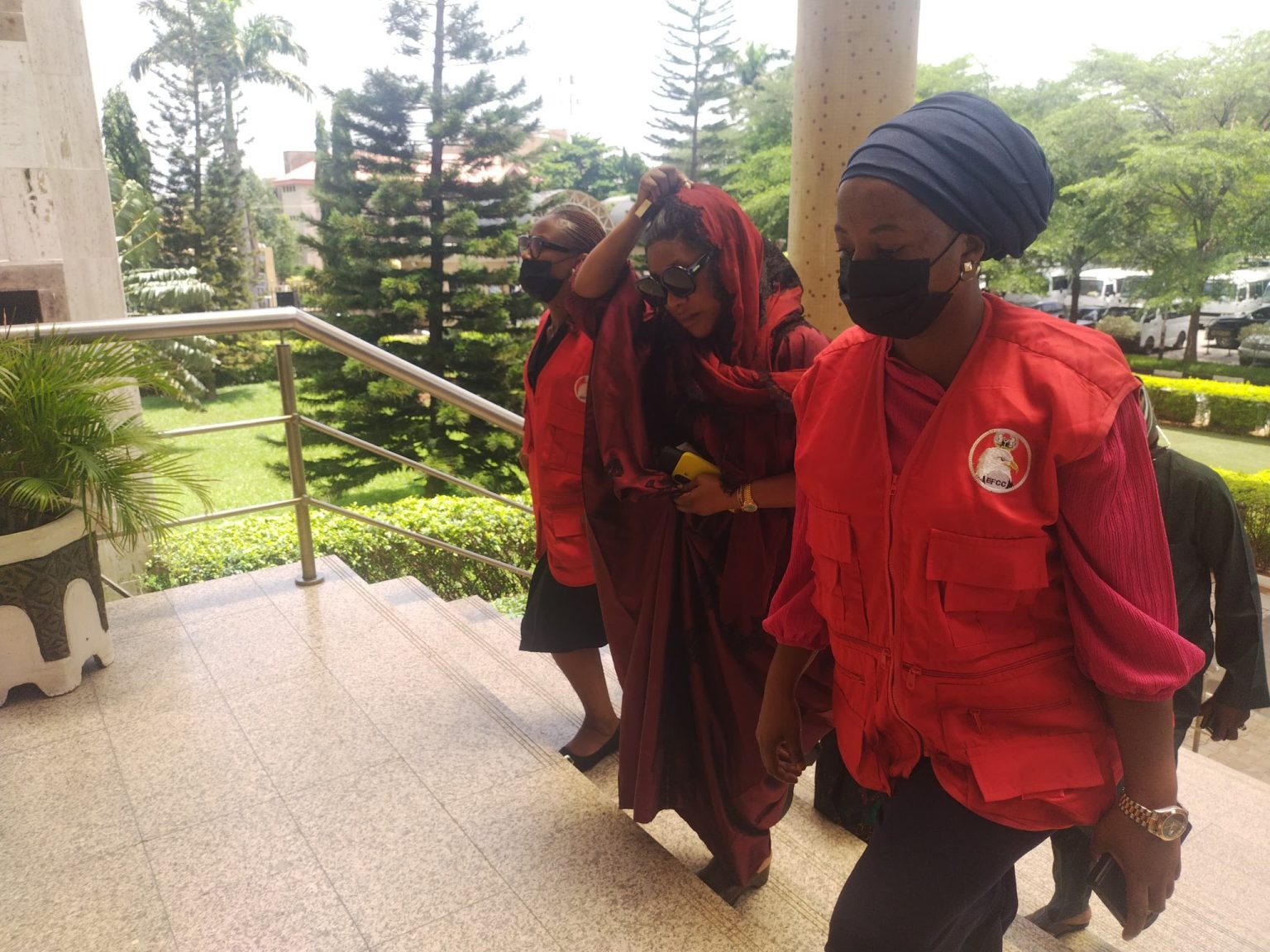The Federal High Court in Abuja on Wednesday directed the Economic and Financial Crimes Commission (EFCC) to release prominent businesswoman and socialite Aisha Achimugu within 24 hours.
Justice Inyang Ekwo issued the directive during a brief ruling, adding that all parties involved, particularly the EFCC, must appear before the court on May 2, 2025, to confirm compliance with the order.
Earlier in the week, the judge had ordered Achimugu to present herself at the EFCC for questioning regarding an ongoing probe into allegations of money laundering and related financial crimes. Following her submission, the EFCC was instructed to accompany her to court on Wednesday, April 30, to update the court on developments.
Achimugu was reportedly apprehended by the EFCC early Tuesday morning at the Nnamdi Azikiwe International Airport. According to the agency, she is being investigated for conspiracy, fraud, money laundering, corruption, and owning assets suspected to have been acquired illegally.
Though she had previously been detained and later released on administrative bail, the EFCC claimed she breached her bail conditions and was subsequently declared wanted. A public notice was later issued seeking help in locating her.
The agency disclosed in its affidavit that Achimugu, during an earlier visit to their office on February 12, 2024, accompanied by her legal counsel, Darlington Ozurumba, provided a written statement explaining large financial transactions linked to her accounts. She acknowledged that over ₦8.7 billion had been invested by partners toward acquiring oil assets, including a signature bonus for oil bloc purchases made in November 2022.
The EFCC stated that its investigation revealed Achimugu, through her company Ocean Gate Engineering Oil and Gas Limited, had purchased two oil blocs—Shallow Water PPL 3007 and Deep Offshore PPL 302-DO—for a combined $25.3 million. The transactions were reportedly carried out mostly in cash through Bureau De Change operators before being transferred to the government through corporate bank accounts.
The commission alleged the funding for these acquisitions could not be traced to any legitimate source of income or business associates, and that bribes were paid to officials of the Nigerian Upstream Petroleum Regulatory Commission as part of the process.
Furthermore, the EFCC noted that the oil blocs acquired by Achimugu’s firm have yet to enter production. The agency also revealed that she maintains 136 bank accounts across ten banks in both her personal and company names.
In light of the court’s prior decision dismissing Achimugu’s suit (case number FHC/ABJ/CS/451/2024), the EFCC said it had continued its investigation and sought additional information from agencies such as the Federal Inland Revenue Service and the Central Bank of Nigeria.

